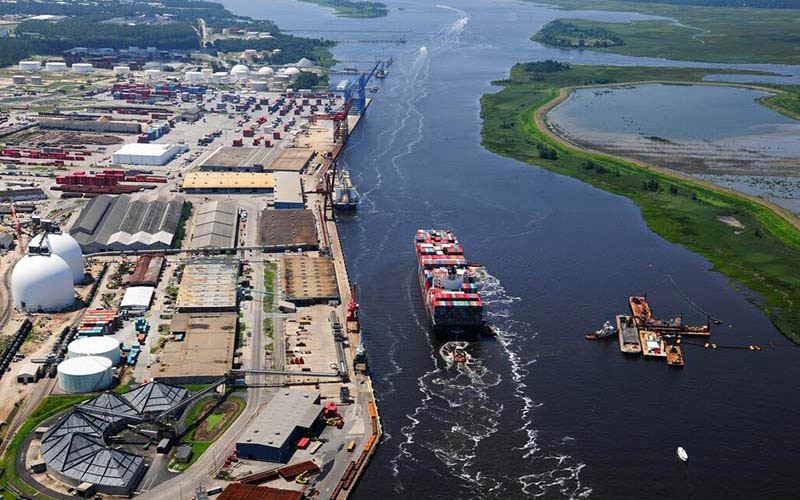Two weeks after the Port of Baltimore was crippled by the collapse of the Francis Scott Key Bridge, at least one customer is directing its cargo to the Port of Wilmington, according to N.C. State Ports Authority officials.
The morning after a container ship departed the Port of Baltimore and collided with the bridge, N.C. Ports Executive Director Brian Clark assured the public that
no such event could happen here. Clark said container vessels do not pass underneath bridges to get to or from ports in Wilmington and Morehead City. Clark added that North Carolina Ports are standing by to assist.
“Ports along the East Coast and the industry as a whole are mobilizing and assisting however they can to ensure minimal supply chain disruptions in the wake of this tragedy,” he said last month.
As the customers of North Carolina ports assess their own supply chains and how the status of the Port of Baltimore could affect their operations, Clark’s team is ready to coordinate and take on additional calls, according to the statement.
An existing port customer plans to use the Port of Wilmington as a contingent port until the Port of Baltimore is available to them, Clark said last week. The customer is an existing client of both the Port of Wilmington and Baltimore, but now the cargo originally going to Baltimore will be temporarily rerouted to Wilmington.
“We anticipate the first vessel servicing this diverted cargo to arrive in the middle of the month," Clark said in the statement.
N.C. Ports officials did not disclose the name of the customer, as of press time.
On Friday, President Joe Biden visited the site of the Baltimore bridge wreckage and pledged to provide more than $8 million in grant funds for the Port of Baltimore’s Sparrows Point, the terminal unaffected by the collapse. The funds are to increase the number of ships serviced by the terminal, according to a
White House release.
White House officials said dozens of vessels headed to Baltimore were diverted to other East Coast ports in a release published Friday. The Supply Chain Disruptions Task Force collaborated with the Norfolk Southern Railway Company to create an additional rail service between the Ports of New York, New Jersey and Baltimore. This helps get cargo meant for Baltimore back to the port so it can be processed and stored correctly, according to the White House release.




